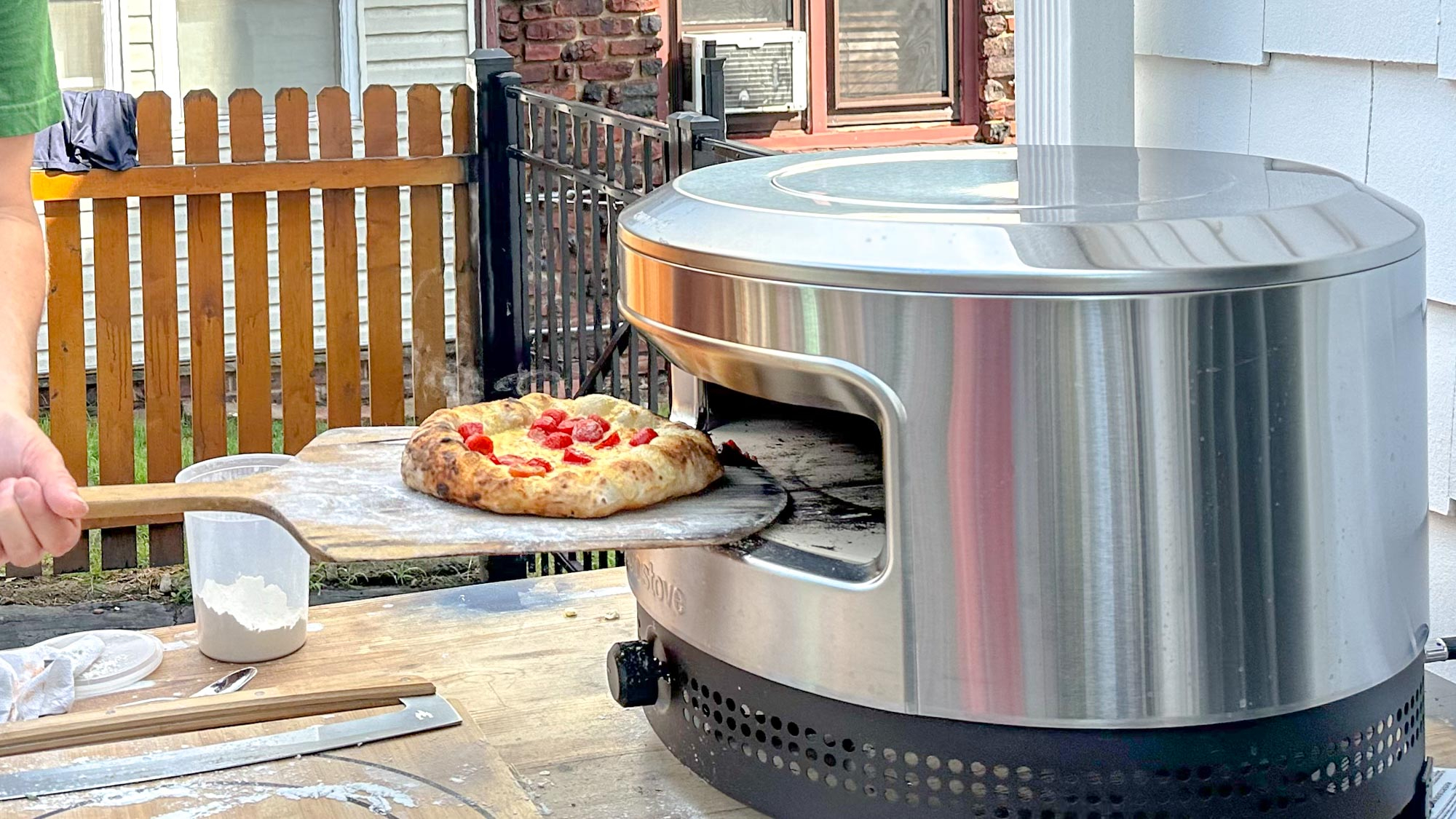
The Solo Stove Pi Prime eliminates any friction budding pizzaiolos may have when it comes to making their first pie. This propane-powered outdoor oven is a cinch to set up and use, and makes great pizzas — as well as a host of other food — faster than you can say margherita.
Among the best outdoor pizza ovens, it’s best suited for those who don’t want to fuss with wood, charcoal, or pellets. And, its starting price of $349 makes it equally attractive to those who don’t want to drop a lot of dough on yet another gadget for their outdoor kitchen. Read the rest of my Solo Stove Pi Prime review to see if this is the model you’ve been waiting for, or if you should go with something else.
Solo Stove Pi Prime review: Price and availability
The Solo Stove Prime will be available as of August 18 at Solostove.com and other select retailers for $349.
Solo Stove also sent me a range of accessories for the oven, which will be available soon: They include an apron, a rocker cutter, Pi Cast Iron Kit, docker, scraper brush, prep board, and lazy Susan. The rocker cutter looks like a version of a Klingon bat’leth, and while it’s no more practical than a traditional wheel cutter, it definitely makes a statement.
I especially liked the Pi cast iron kit, which comes with a circular cast iron pan and a cast iron griddle, which is flat on one side and ridged on the other. I used both to make some steaks, fish, and roast vegetables in the oven.
The prep board looks like a large cutting board, with two circles that help you shape your dough into a 12- or 16-inch diameter pizza. On the right side of the board are three cutouts, into which you can place small plastic containers for toppings. It’s really handy, but this part of the board has to hang off the edge of a table for the containers to seat properly.
Solo Stove Pi Prime review: Design
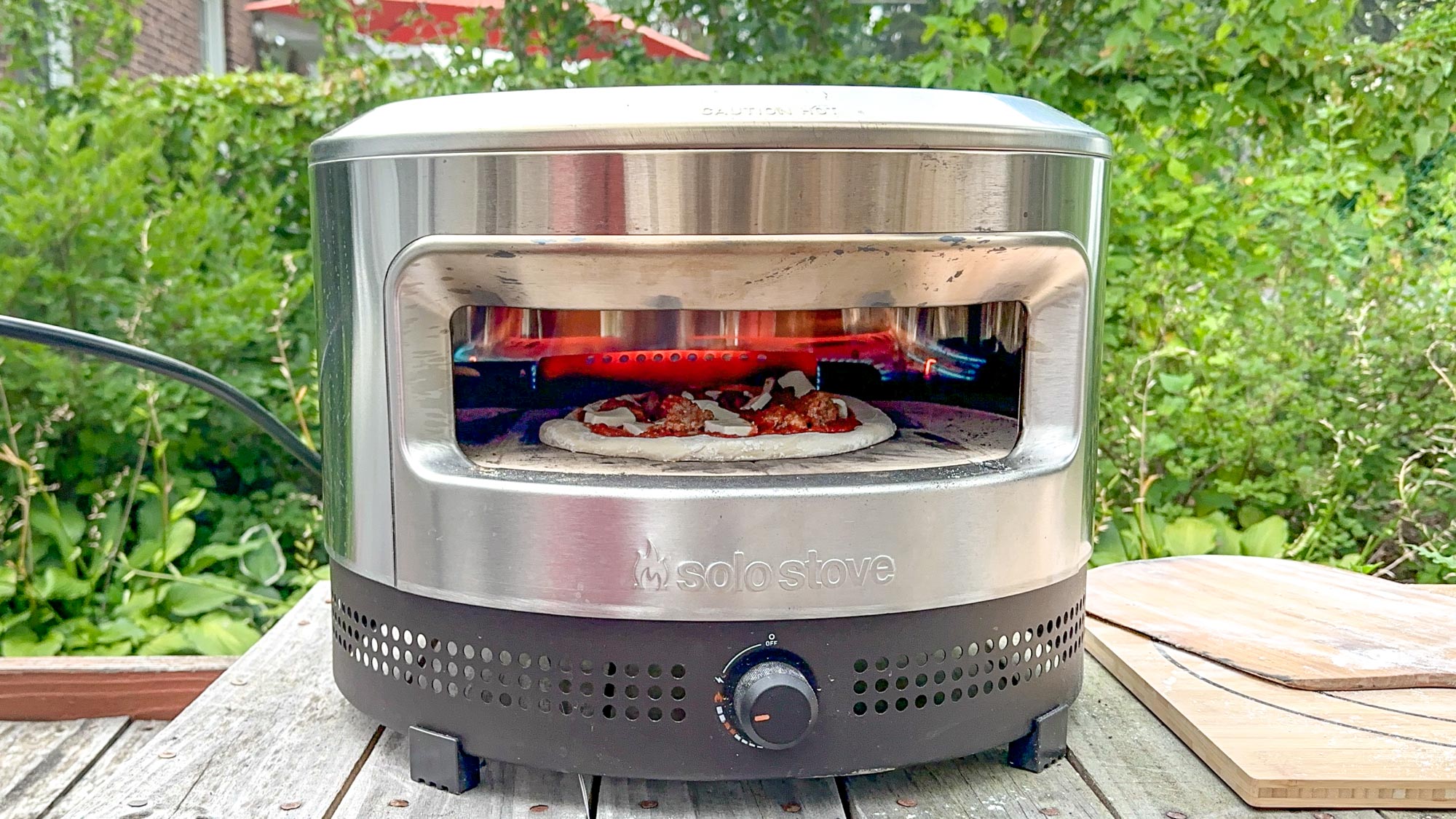
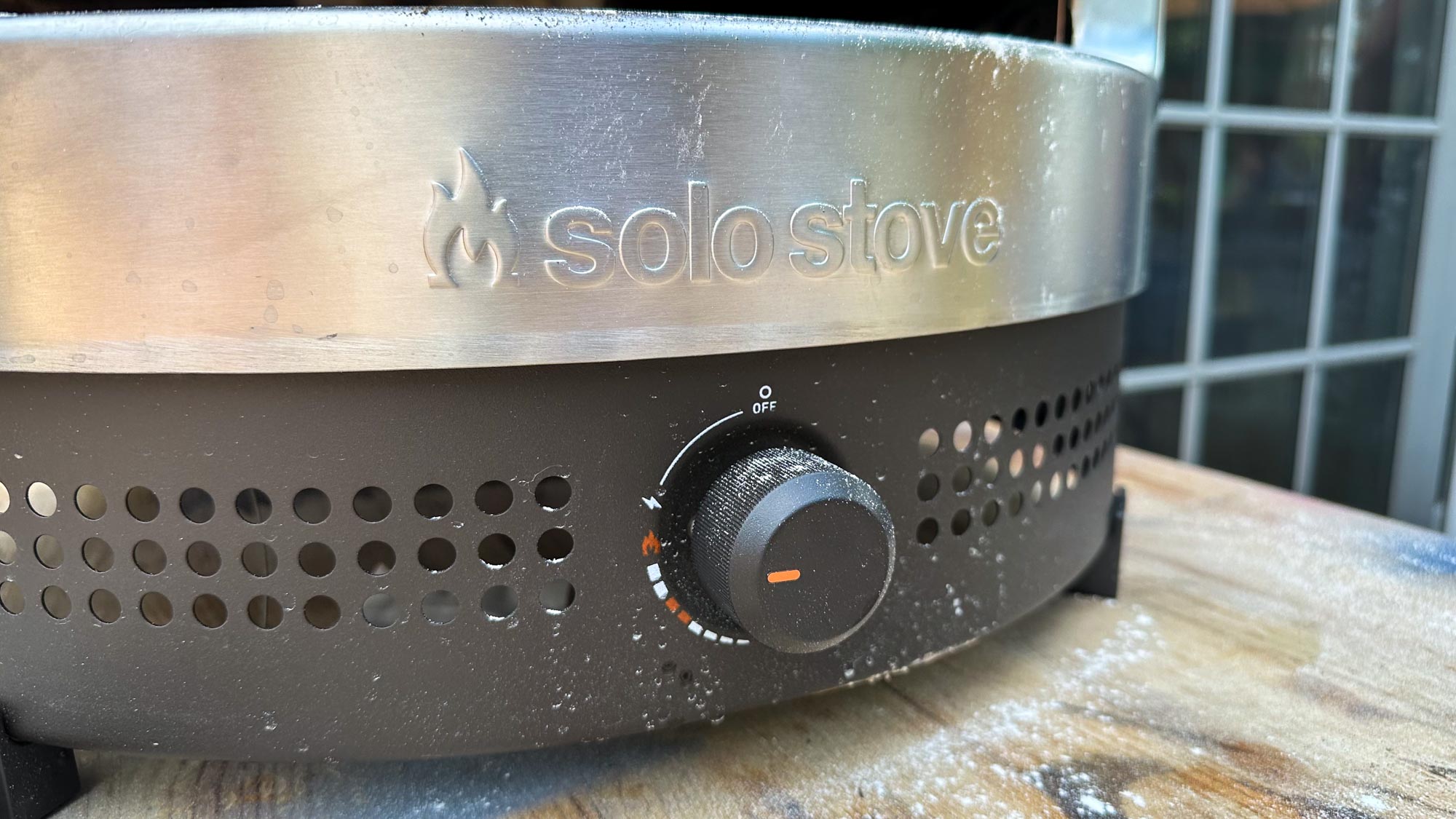
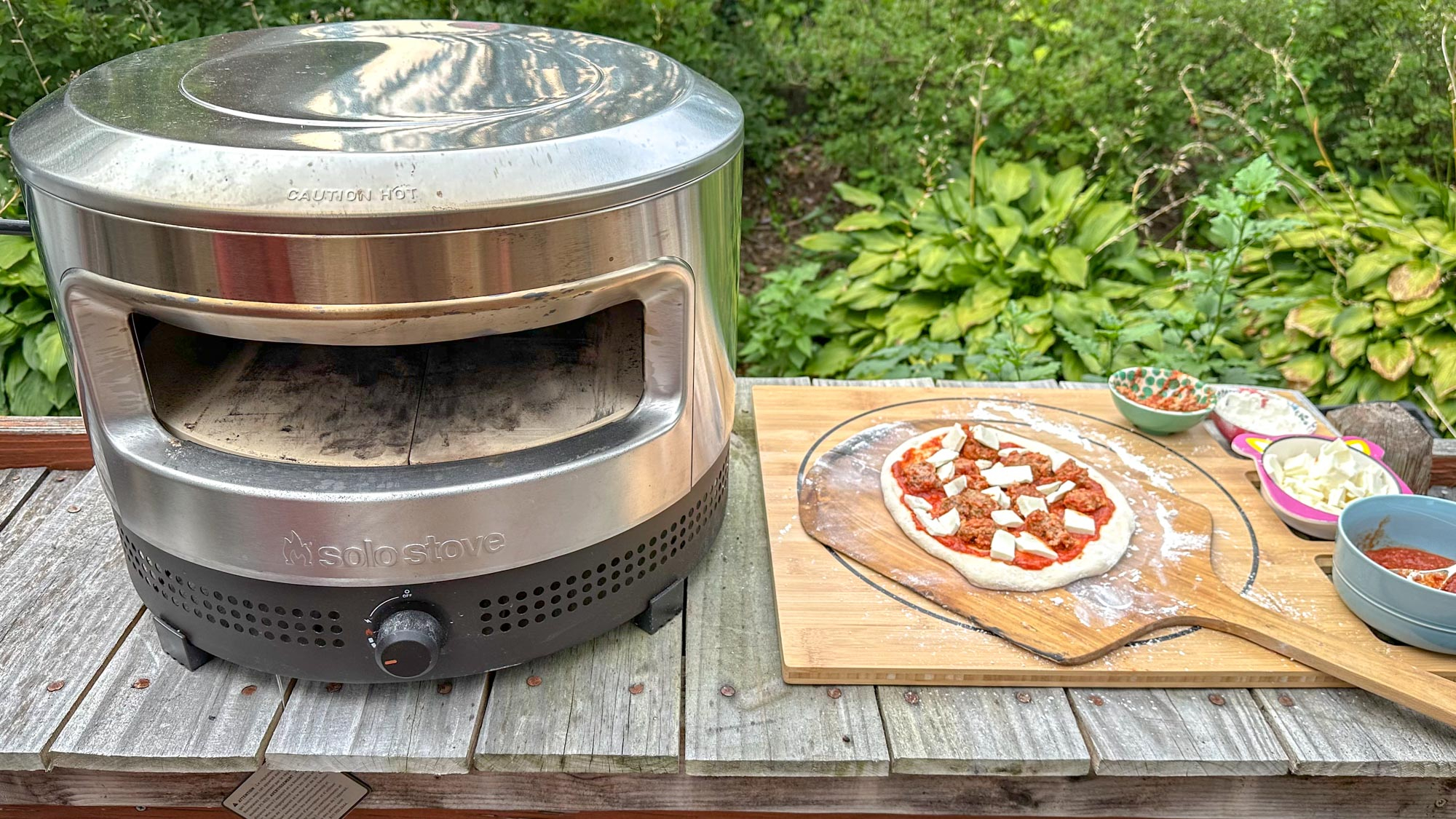
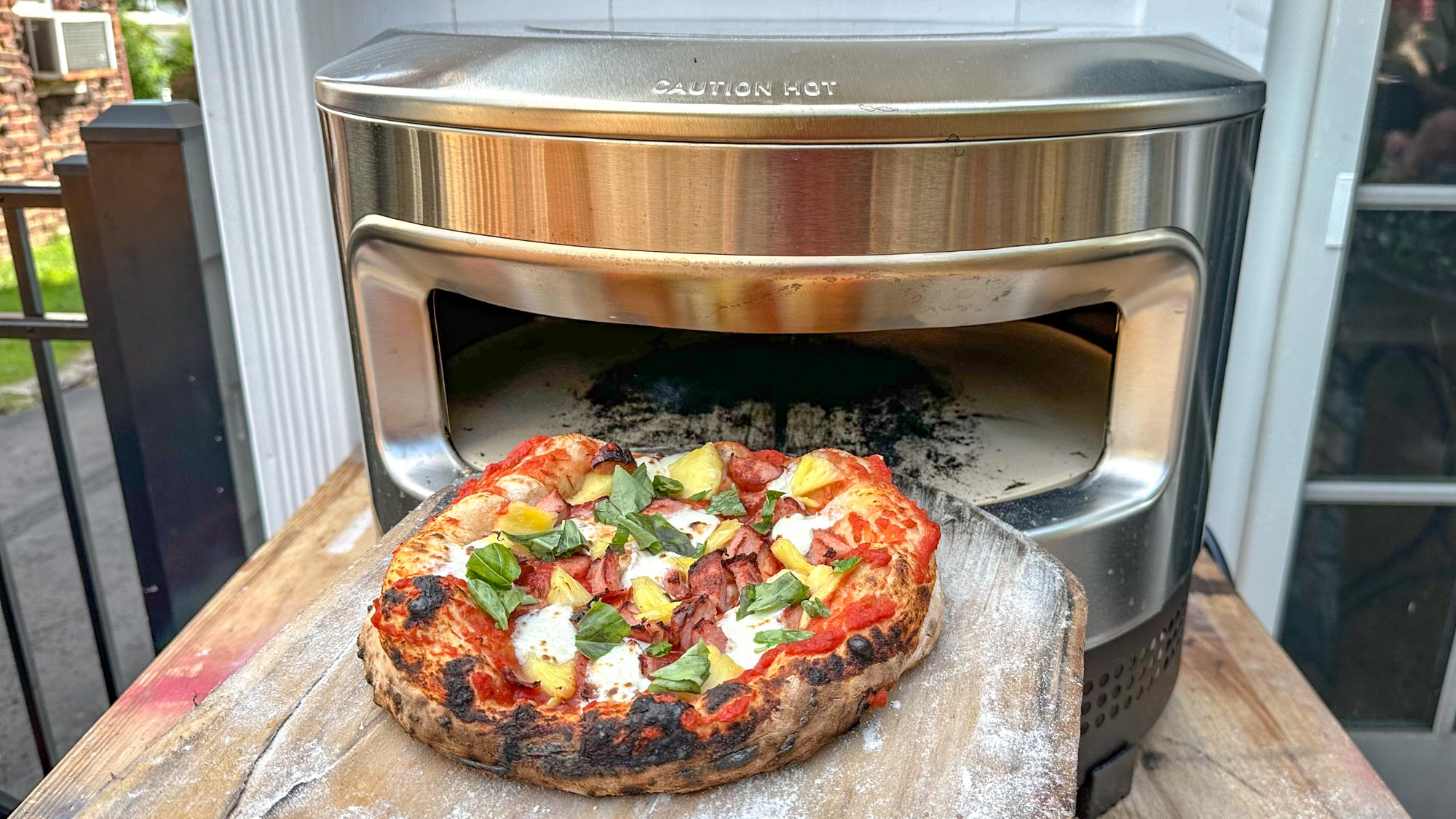
Size: 20.5 inch diameter x 15.5-inch height
Weight: 29.7 pounds
Opening: 13 x 3.5 inches
Fuel source: Propane
The Pi Prime looks very similar to Solo Stove’s first pizza oven, the Solo Stove Pi. Where that model was clad entirely in stainless steel, the lower half of the Prime has a black finish. And, where the gas controls for the Pi were on the rear of the unit, the Pi Prime’s control is located dead center in the front, which made it much easier to adjust.
Weighing just shy of 30 pounds, the Pi Prime isn’t as light as, say, the Ooni Fyra 12, but it was still easy enough to carry around. It measures 20.5 inches in diameter, and 15.5 inches in height. The oven’s opening is 13 inches wide by 3.5 inches tall; I was able to comfortably fit a 12-inch pizza in the oven.
Like most pizza ovens, the Pi Prime’s heating element is located in the rear; a metal baffle in the back keeps your pizzas from getting charred too quickly, and a domed roof allows the heat to cascade over the front of the pie.
Solo Stove Pi Prime review: Performance
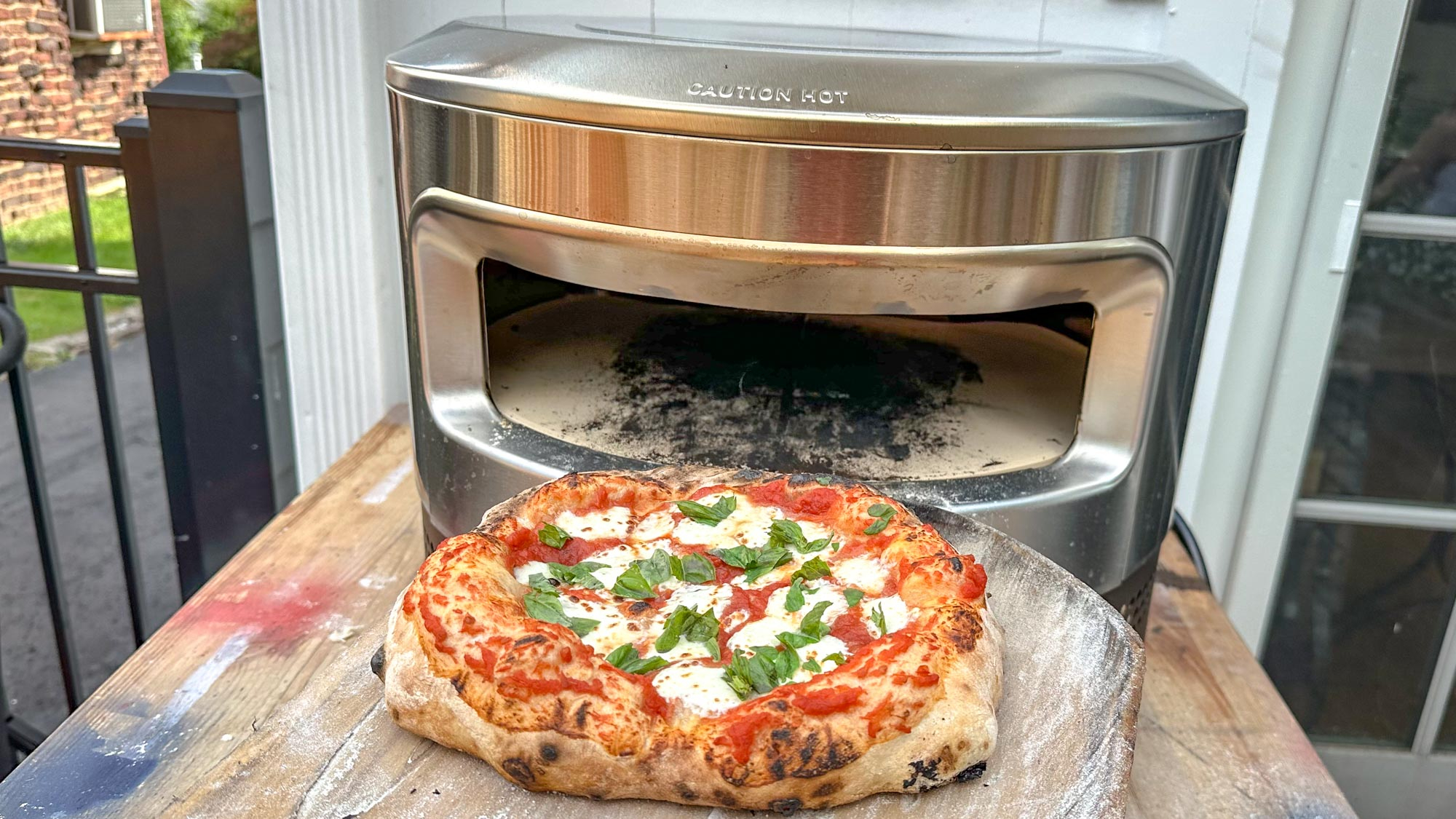
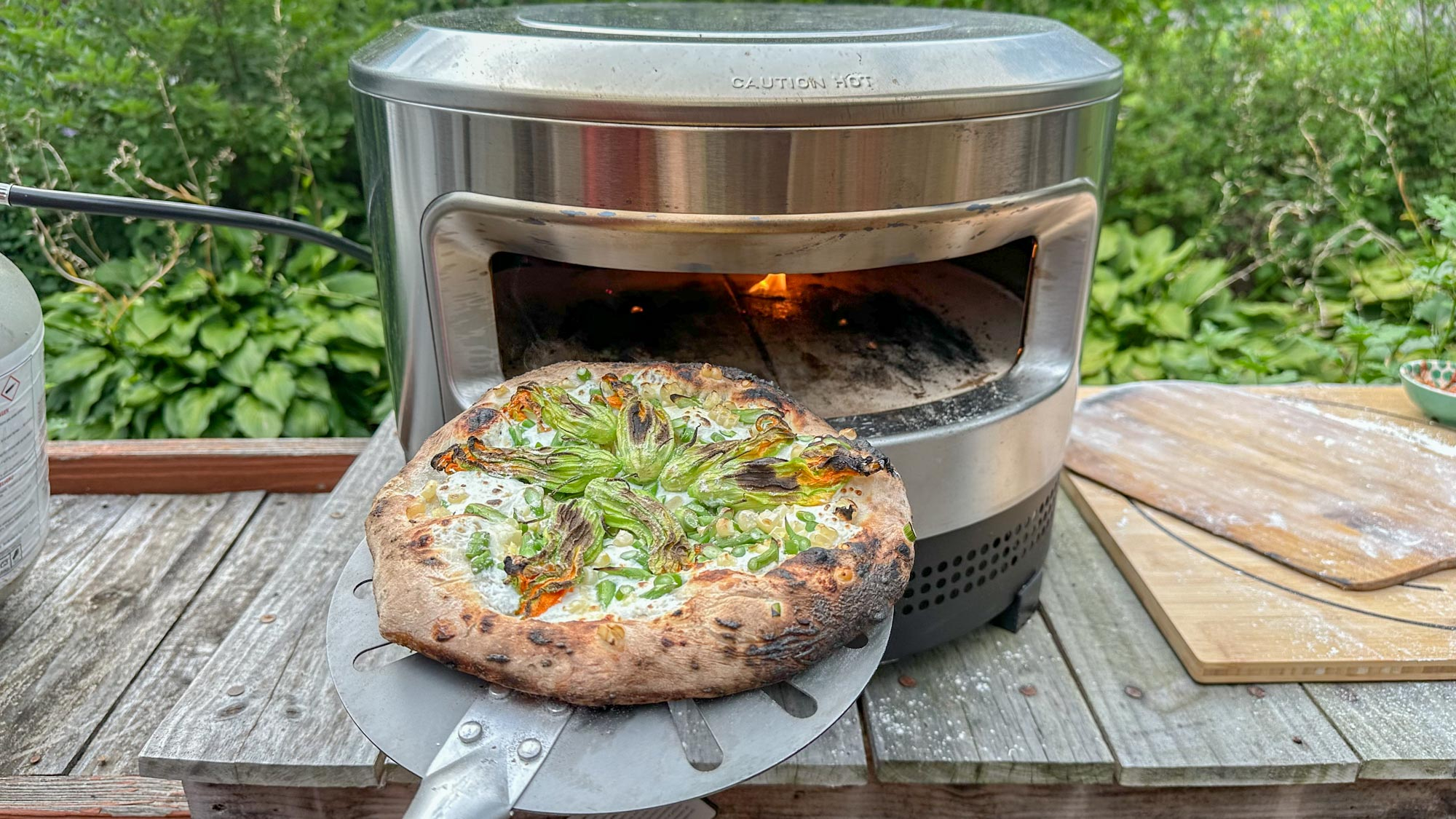
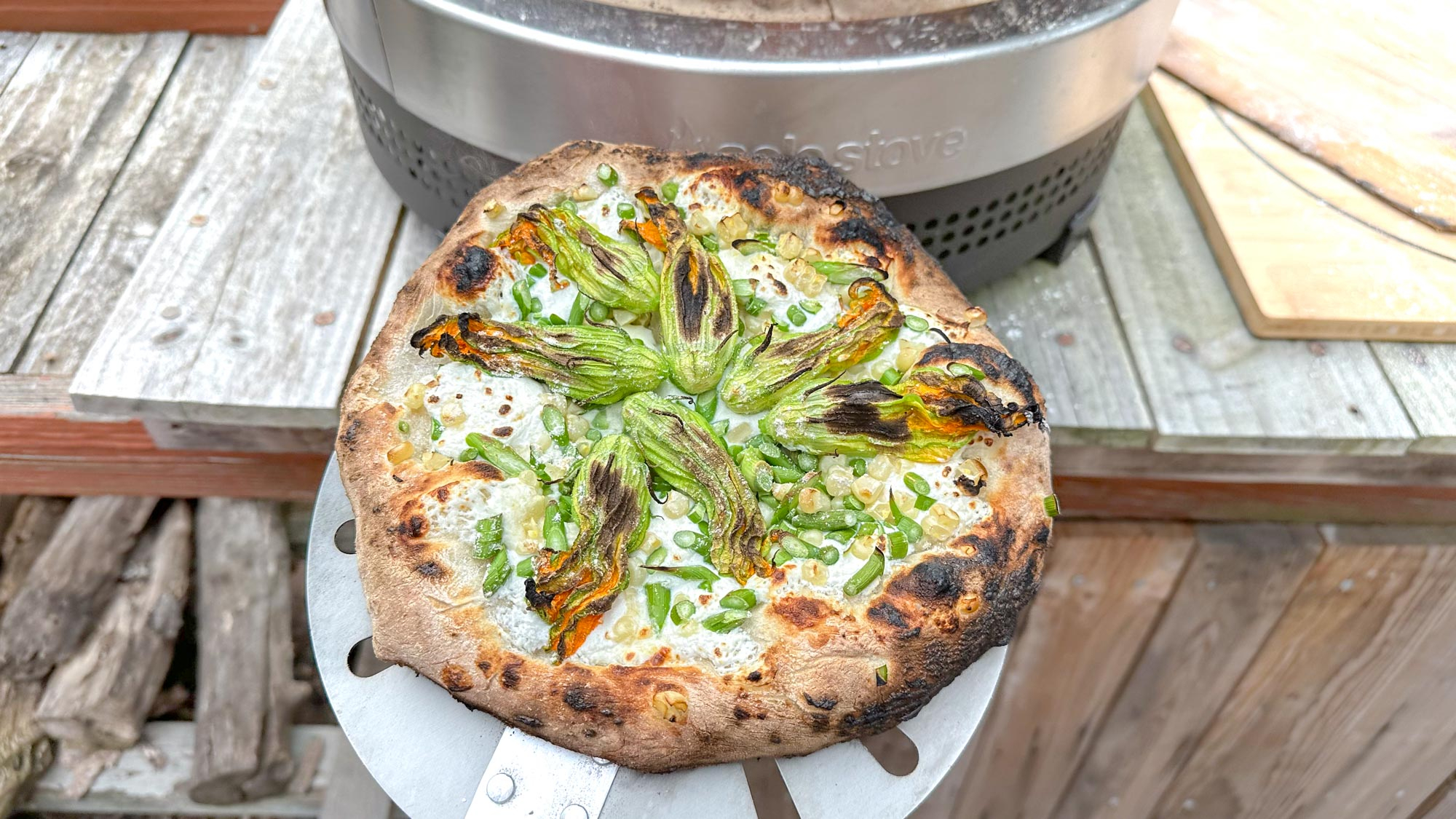
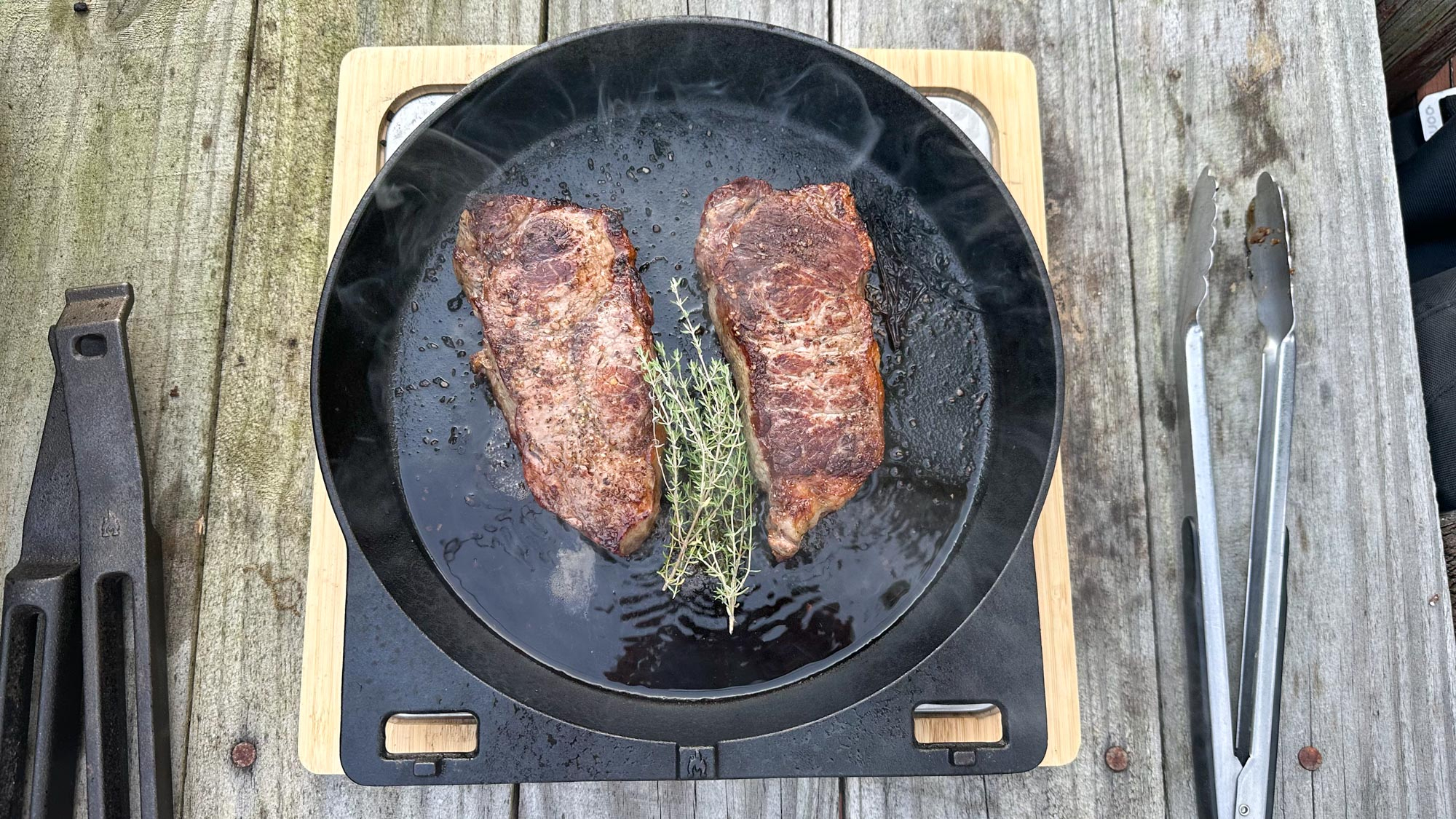
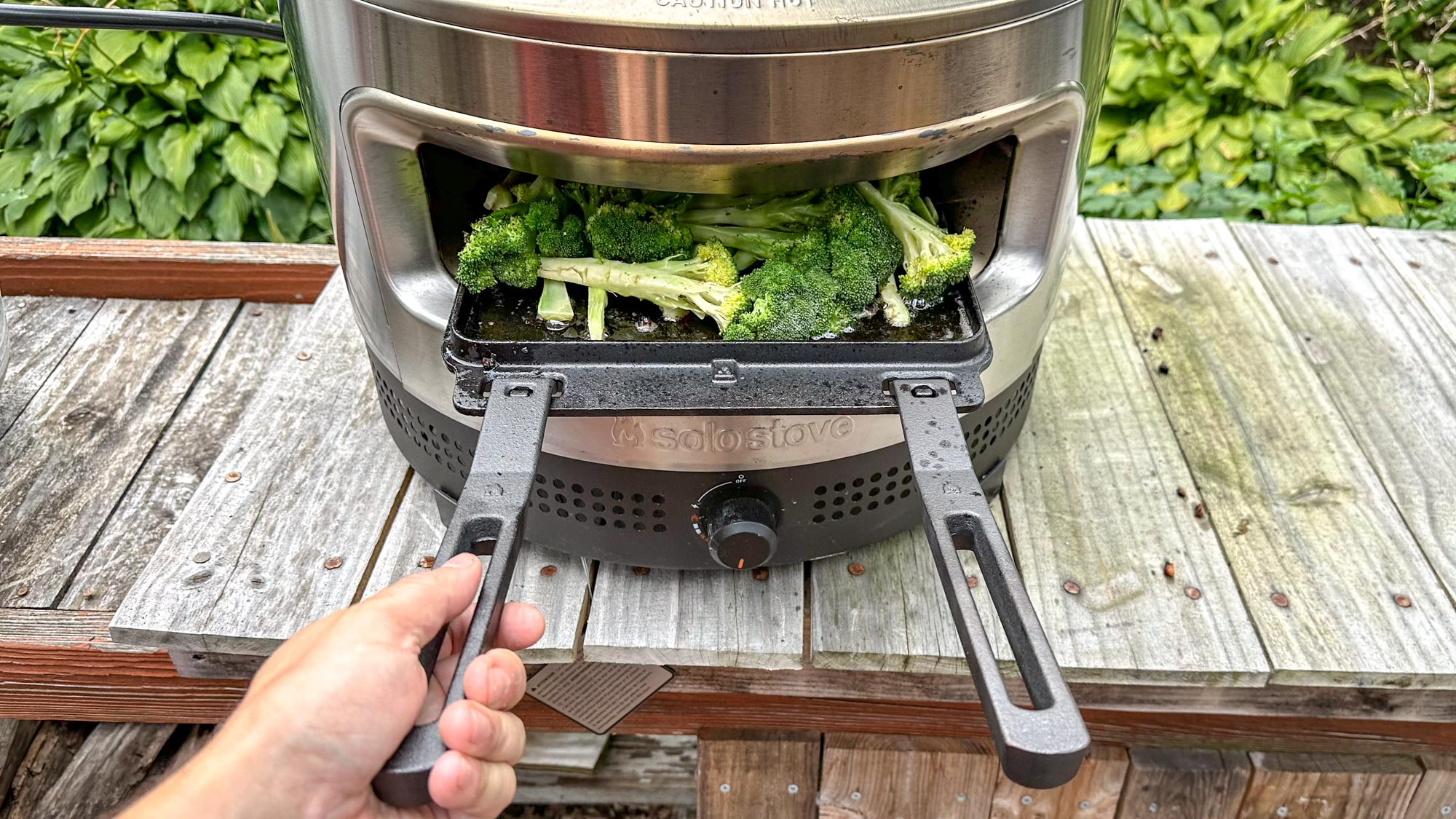
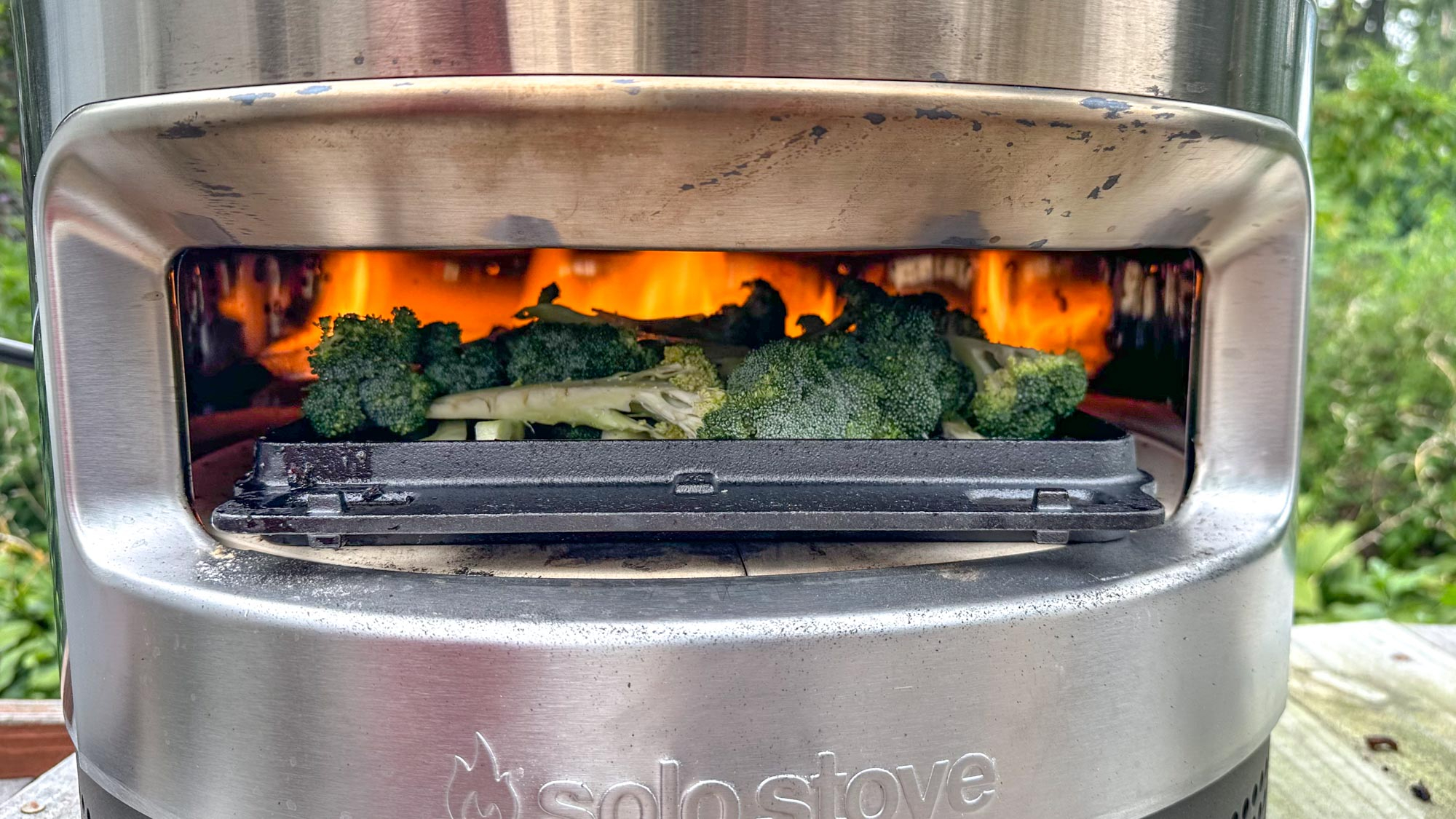
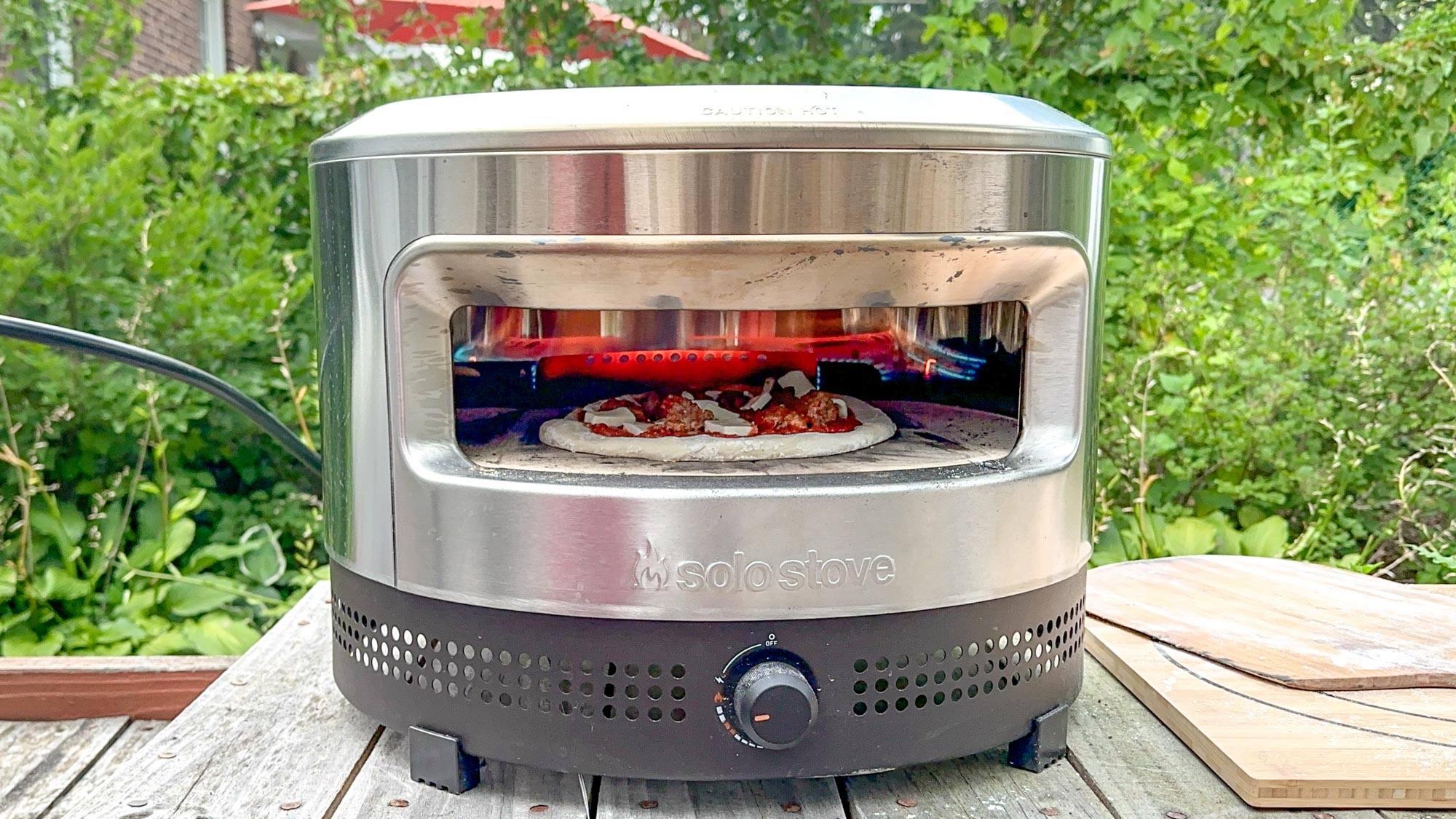
There’s very little to setting up the Pi Prime; all you have to do is place the two pieces of the pizza stone inside the oven, and then attach your propane tank. About the only critique I have with the Pi Prime is that the hose for connecting it to a propane tank could be longer; because of the configuration of my deck, I had to place my propane tank next to the oven, when I’d prefer to have it on the ground.
Turning the oven on is as simple as turning the knob, which has a built-in lighter. It rarely took more than one or two sparks to light the oven, and the knob made it easy to control the burner.
I baked about 10 pies in the oven, using a Neapolitan-style dough at 60 percent hydration. All of the pizzas turned out great, with nice leoparding along the top and a charred crust on the bottom. As with most pizza ovens, you want to let the Pi Prime heat up for about 20-30 minutes beforehand, so that the stone gets nice and hot.
At its hottest temperature (around 900 degrees Fahrenheit), I was able to cook a pizza in the oven in around 90 seconds, about the same amount of time as you get from the rest of the best pizza ovens. However, you’ll definitely need a turning peel, as the pizza needs to be rotated about halfway through. I let one pie go a little too long, and the crust quickly turned to ashes.
I also cooked a pair of New York strip steaks in the Pi Prime using a cast iron pan; being able to control the heat of the oven allowed me to get the perfect sear on the outside while keeping them medium-rare on the inside. Likewise, some broccoli sprinkled with olive oil also came out nicely charred after a few minutes in the oven.
Solo Stove Pi Prime review: The competition
The Pi Prime’s closest competitors are the Ooni Koda 12, which is also a gas-only model that can fit 12-inch pies; it’s about 9 pounds lighter, but costs $50 more than the Pi Prime. There’s also the Ooni Karu 12 ($299), which can use wood or propane, but you’ll need to spring for a $99 adapter if you want to cook with gas. We haven’t used either model, but based on our experiences with other Ooni pizza ovens, are fairly confident that they’ll work pretty well, too.
Solo Stove Pi Prime review: Verdict
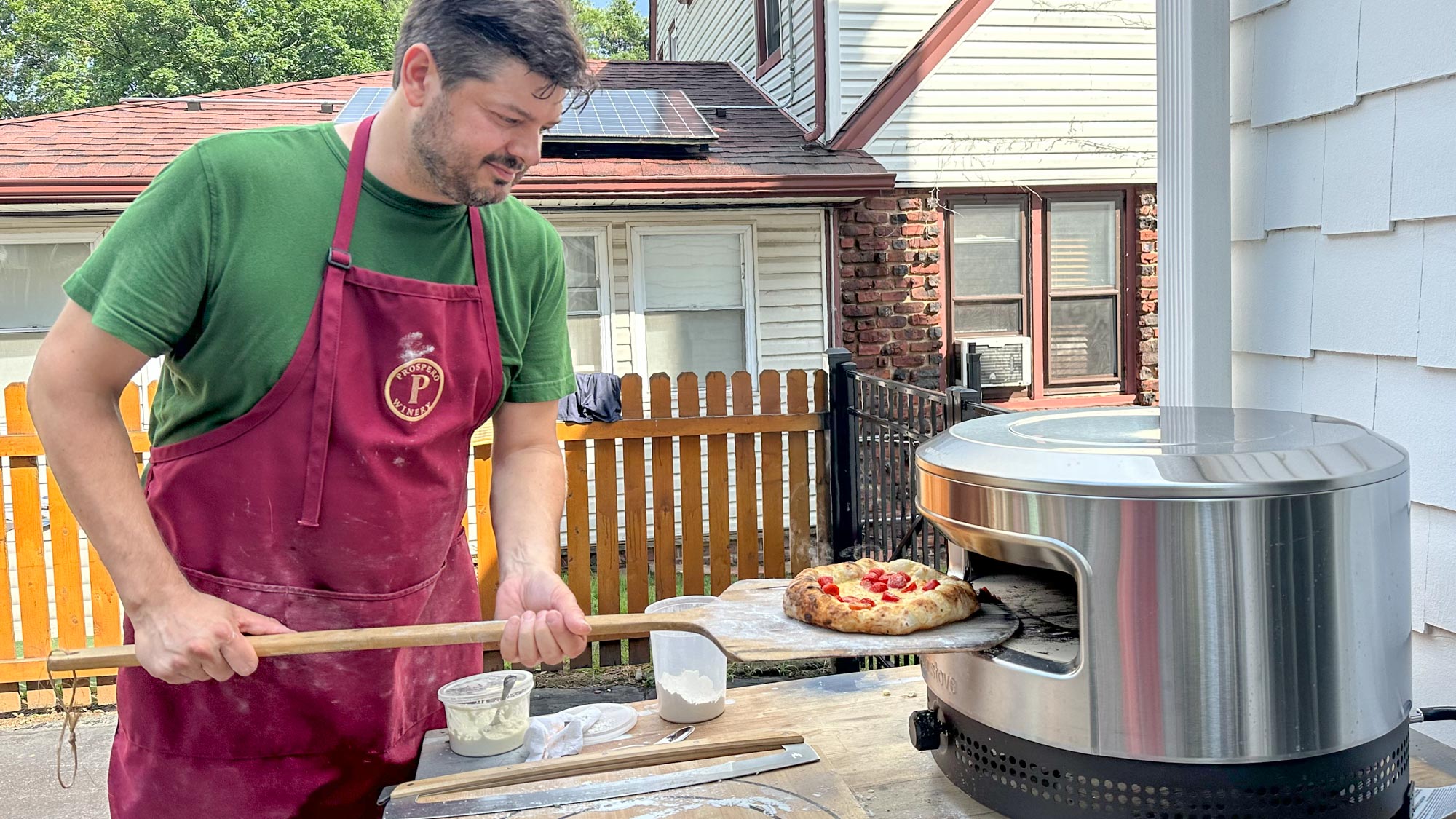
Solo Stove made its name with one of the best fire pits, and its attention to quality has continued with this new product category. If you’re new to the world of outdoor pizza making, chances are you’re going to want an oven that’s easy to use, and few are easier than the Solo Stove Pi Prime. It’s a cinch to set up, so the only thing you have to worry about is making sure your pizza doesn’t get burned. At $349, it’s not as cheap as the $279 Ooni Fyra 12, but you don’t have to fuss with wood pellets, and it’s a lot easier to control the oven’s temperature.
I actually prefer the Solo Pi Prime to the company’s other pizza ovens; I found that it was too difficult to add wood to the Solo Pi pizza oven, and the Solo Pi Fire (an attachment for its fire pits) wasn’t the best at baking pizzas.
Those who are more advanced, or are looking for greater flexibility, should check out the Ooni Karu 12 ($299) or the Karu 12G ($429); both can use wood or propane, and the latter has a built-in thermometer. But if you go with the Solo Stove Pi Prime, you won’t regret it.







